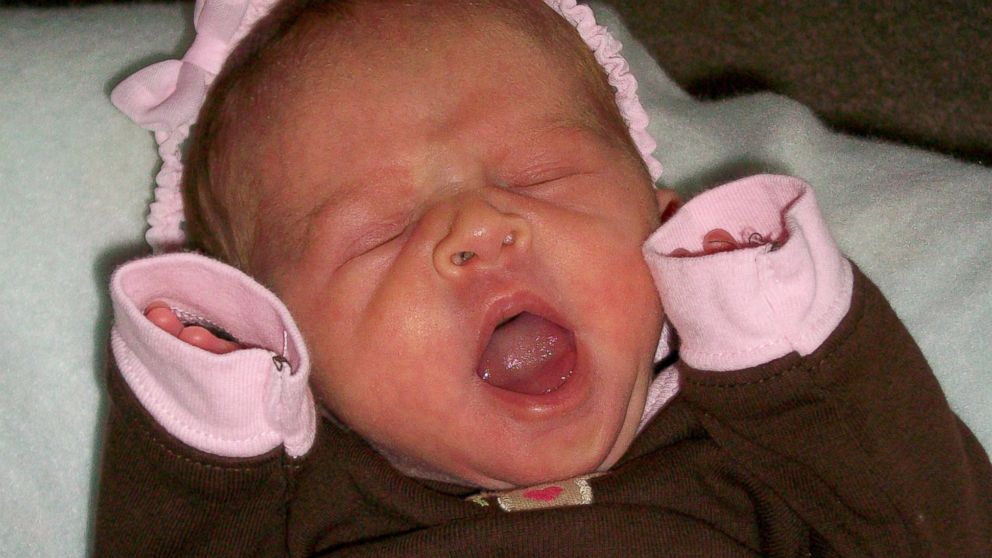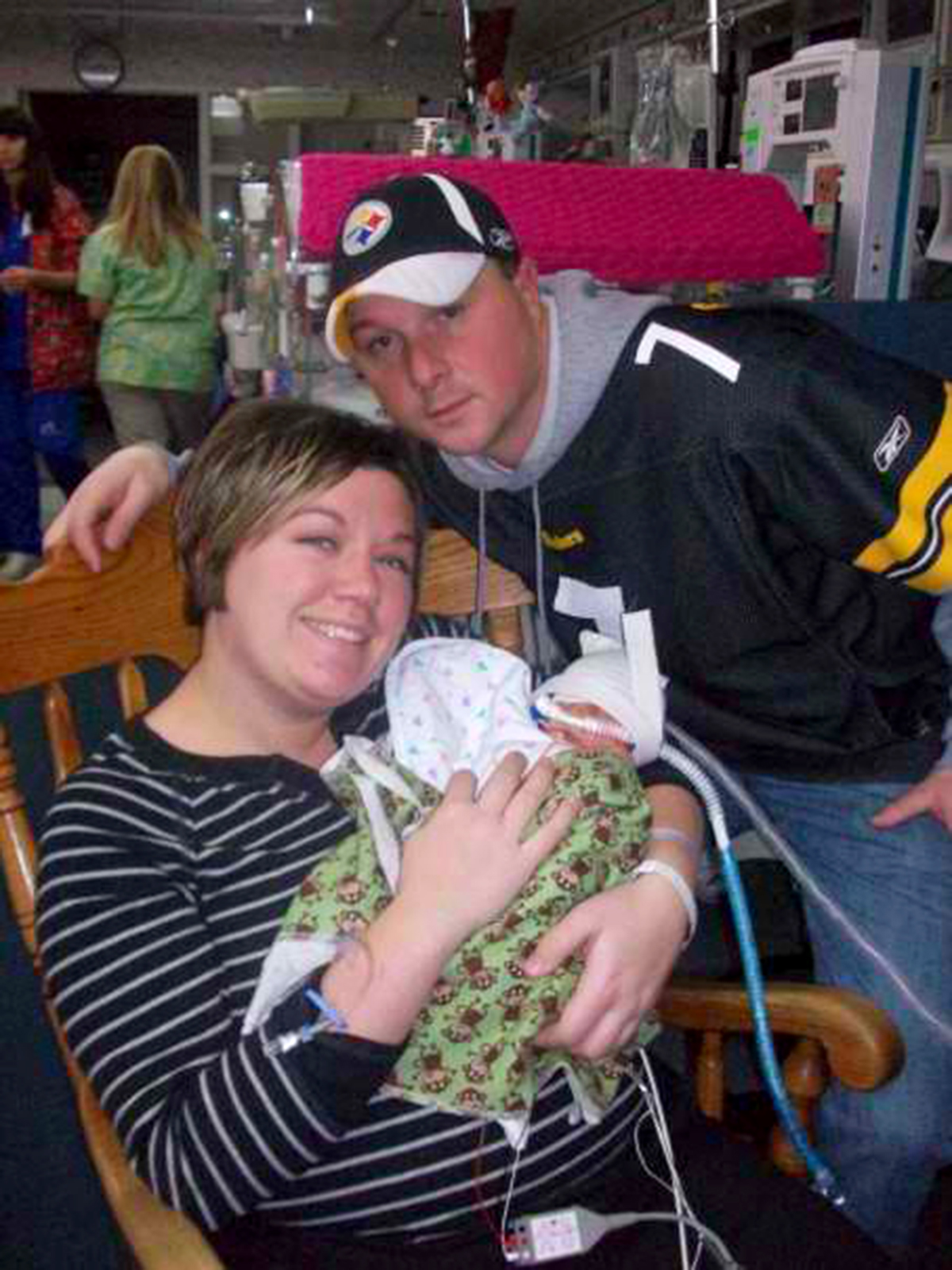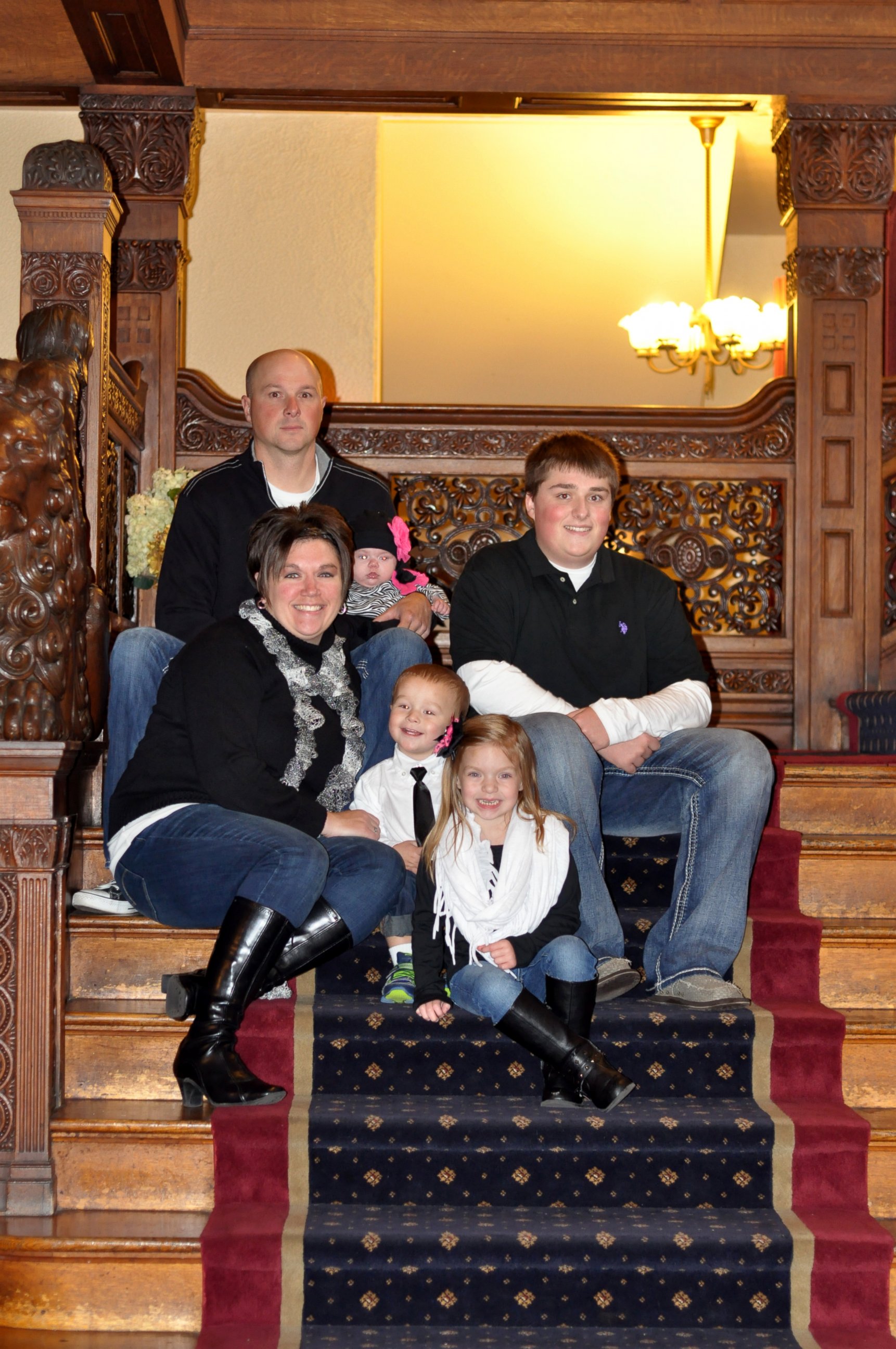Whooping Cough Back With a Vengeance in California
What California's worst whooping cough outbreak in 70 years means for the U.S.

— -- Callie Van Tornhout was about a month old when her mother noticed that she'd developed a dry cough on a Sunday afternoon in January.
Soon the cough worsened, and Callie became pale and started throwing up, Callie's mother, Katie Van Tornhout told ABC News. By the middle of the week, Callie stopped breathing in her mother's arms in a pediatrician's waiting room and was rushed to the hospital.
On Saturday, less than a week after the cough first appeared, Callie died at 37 days old on Jan. 30, 2010. It wasn't until a few weeks later that tests confirmed the culprit: whooping cough.
That year, the country was in the midst of a major whooping cough outbreak, and all eyes were on California, which was experiencing its largest outbreak in 60 years. But the cough hit other states, too, including Minnesota and Callie's state: Indiana.
"The CDC was like, 'Didn't you have the TDaP vaccine when you were pregnant?'" Van Tornhout recalled. "We didn't know what that was."

California is again the the grips of a whooping cough outbreak, and this time it's even worse, according to the U.S. Centers for Disease Control and Prevention. The state is facing its worst outbreak in 70 years and has nearly 1,000 more cases than it did in 2010. As of Nov. 26, the state had 9,935 reported cases.
"The last time a series of outbreaks occurred across the country, California started the parade," said Dr. William Schaffner, chairman of preventive medicine at Vanderbilt University Medical Center in Nashville, Tennessee. "And so this is a harbinger we are fearful of."
Whooping cough, also known as pertussis, is caused by bacteria and considered cyclical because cases peak every three to five years. It's especially serious in infants, who are more likely to catch it. About 50 percent of all children under a year old who catch whooping cough need to be hospitalized, and up to 2 percent of them die, according to the CDC.
Since children aren't due for their whooping cough vaccine -- called TDaP -- until they are 2 months old, the CDC recommends it for pregnant women so they can pass along the immunity to their unborn children. Van Tornhout said her doctor never told her about it, but now she works as an advocate for Every Child by Two, a nonprofit organization that raises awareness about vaccine-preventable diseases.
"If it can happen to my child, it can happen to theirs," Van Tornhout said, adding that neither she nor her husband were sick before Callie caught the cough. At first, she was afraid she gave the cough to Callie, but health officials told her that she and Callie likely picked up the bacteria at the same time.
Whooping cough vaccine was developed in the 1940s and is very effective, Schaffner said, but developed a sour reputation for side effects, including high fever, swelling of the lymph nodes and others. So scientists developed a new vaccine that was lumped in with the tetanus and diphtheria vaccines to make TDaP. The new vaccine effectively prevents whooping cough but its effectiveness weakens over about 5 years, making the population more vulnerable to the bacteria's cyclical nature without regular boosters, Schaffner said.
Dr. Jeff Duchin, who also chairs the public health committee for the Infectious Disease Society of America, said the latest outbreak in California is a sign of what's to come until a better vaccine can be developed. What's most important is to make sure pregnant women get vaccinated, he said.
"This is a new reality for us in public health," he said.
Indeed, the country's all-time lowest total number of whooping cough cases occurred in 1976 with 1,010 cases, according to the CDC. Although the numbers have fluctuated per whooping cough's cyclical nature and aren't as high as they were in the 1930s, there were 48,277 cases in 2012, according to CDC data.
Since 2010, Van Tornhout has had three more children, and she's had the TDaP vaccine while pregnant with all of them. Still, she said her pregnant friends and family members have told her they had to ask their doctors for the shot.
"I'm hoping that parents realize that it's an issue," she said. "It's not just happening here and there. It's all over."





